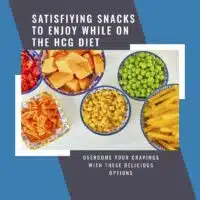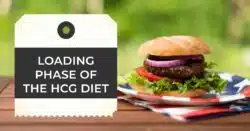The HCG (human chorionic gonadotropin) diet has become an increasingly popular rapid weight loss diet in recent years. This controversial diet combines taking HCG supplements or injections along with an ultra-low calorie diet, typically limited to just 500 calories per day.
While the diet may produce significant short-term weight loss for many people, it does not work successfully for everyone who tries it. There are some common pitfalls that can undermine success on the demanding HCG diet protocol.
Key Facts on HCG Diet Pitfalls
-
The extremely low 500-calorie diet is difficult for most people to follow long-term.
-
Hunger, low energy and cravings are common complaints on the diet.
-
Lack of sustainability after the diet leads many to regain lost weight.
-
Poor preparation for the restrictive protocol sets some up for failure.
-
Medical guidance is advised to minimize health risks from the diet.
“In the United States, more than 70% of adults aged 20 and over are overweight or have obesity.” – CDC National Center for Health Statistics
Learning how to optimize success and avoid common stumbling blocks can improve your chances of seeing satisfying weight loss results on the controversial HCG diet.
Overview of the HCG Diet
The HCG diet was first introduced in the 1950s by British physician Dr. Albert T.W. Simeons. His original protocol consisted of:

- Very low calorie diet of 500 calories per day
- Daily injections of the hormone HCG
- No sugars, starches or high fat foods allowed
- Lean protein like chicken breast, white fish, or shrimp
- Non-starchy vegetables only
- 2 servings of fruit per day
This very restrictive diet plan is supposed to be followed for several weeks at a time, with claims of losing up to 1 to 2 pounds per day. However, there are many struggles dieters face in meeting the rigid requirements.
Why the HCG Diet Fails for Many People
There are several key reasons why the controversial HCG diet is too challenging for many people to stick to for more than a few days or weeks:
Extremely Low Calorie Intake
Consuming just 500 calories daily for extended periods is not sustainable or advisable for most people. This drastic calorie deficit typically leads to:
- Hunger, food cravings and preoccupation with food
- Fatigue, weakness and trouble concentrating
- Headaches, irritability and mood swings
- Possible nutritional deficiencies long-term
Powering through hunger pangs and weakness on 500 calories is extremely difficult.
Carb and Fat Restriction Side Effects
Dramatically reducing carbohydrates and fats can also lead to unpleasant side effects like:
- Constipation from lack of fiber
- Disrupted sleep from low carbs
- Dehydration from glycogen depletion
- Gallstone formation from rapid weight loss
- Electrolyte imbalances
These effects can make sticking to the diet challenging.
Lack of Satiety on Low Calories
The allowed foods on the diet do not promote lasting fullness and satisfaction. With only two small lean protein meals, low fiber veggies and 2 fruits per day, hunger and cravings are hard to control.
Difficulty Maintaining Motivation
The severity of the calorie restriction and strict rules often diminish motivation levels quickly. The initial excitement can fade within a few days or weeks, making it tough to power through.
Regaining Lost Weight
One of the biggest pitfalls is regaining most or all of the weight lost shortly after stopping the diet. Drastic calorie deficits typically lower metabolism, leading to rapid weight regain.
Making sustainable lifestyle changes is very difficult following an intense short-term diet.
Tips to Increase Your Chances of Success
While the HCG diet comes with many challenges, you can utilize strategies to help overcome common pitfalls:
Gradually decrease calories – Starting at a less extreme calorie level around 800-1000 can ease the transition before going very low calorie.
Plan meals and snacks – Prepping HCG-friendly foods helps control hunger and cravings.
Drink water – Staying hydrated is key to feeling full on few calories.
Manage expectations – Anticipate challenges so they are less discouraging.
Get support – Having an accountability partner or coach can boost motivation.
Weigh food – Use a food scale to prevent underestimating portions.
Supplement wisely – Speak to your doctor before using supplements.
Transition slowly – Ease out of the diet with a post-HCG meal plan.
Make exercise a habit – Increase activity levels to boost results and maintain calorie burn after the diet.
With preparation and support, you can overcome the obstacles that hinder success on the demanding HCG diet protocol.
Addressing Common HCG Diet Problems
Here is a closer look at some of the specific complaints and struggles people face on the HCG diet, along with tactics to help overcome them:
Problem: Extreme hunger
Solutions:
- Drink water, tea or coffee between meals
- Chew sugar-free gum
- Distract yourself with activities
- Eat larger protein portions if allowed
- Eat plenty of low calorie vegetables
- Get support from others on the diet
Problem: Fatigue and weakness
Solutions:
- Reduce exercise intensity
- Get more sleep
- Drink water and electrolytes
- Have a cup of coffee for energy
- Eat diet-approved snacks for quick calories
- Check in with your doctor
Problem: Craving sweets
Solutions:
- Drink naturally flavored sparkling water
- Eat fruit when cravings strike
- Chew mint gum
- Mix berries with plain Greek yogurt
- Freeze grapes for a sweet treat
- Stir cinnamon into oatmeal or cottage cheese
Problem: Lack of variety
Solutions:
- Find new HCG recipes
- Use different seasonings and sauces
- Rotate different proteins and veggies
- Try new fruits like guava or kiwi
- Mix up how you cook proteins like grilling, baking, sautéing
Problem: Persistent fatigue and headaches
Solutions:
- Check in with your healthcare provider
- Drink electrolytes and eat salty foods
- Take a multivitamin if approved by your doctor
- Get more sleep and rest
- Increase calories if needed for health
Being aware of common struggles can help you be proactive about troubleshooting issues that arise on the very restrictive HCG diet.
Making the HCG Diet Work Long-Term
While the HCG diet may produce significant weight loss in the short-term, keeping it off long-term is critical for success. Here are some tips:
Transition slowly off the diet – Gradually increase calories and carbs week-by-week to avoid rapid rebound weight gain.
Stick to high protein – Eating adequate lean protein preserves muscle and increases satiety.
Fill up on fiber – Focus on high fiber carbs like vegetables, fruits and whole grains.
Drink water – Staying hydrated prevents mistaking thirst for hunger.
Exercise consistently – Continue exercising to maintain calorie burn and metabolism.
Get accountability – Having a coach or accountability partner can help you stay motivated.
Make new habits – Focus on creating healthy habits you can sustain lifelong.
Manage stress – Find outlets to reduce stress rather than emotional eating.
Forgive slip ups – Refocus on your goals after occasional indulgences without giving up.
Learning how to keep the weight off after finishing the HCG diet is critical for maintaining success long-term.
Creating an HCG Diet Routine That Works
The HCG diet only works if you are able to stick to the protocol consistently and make lifestyle changes that continue after stopping the diet.
Here are some tips for creating a sustainable routine:
Schedule meals – Planning specific meal times helps structure your day.
Prep food ahead – Having HCG-friendly foods ready to go prevents cheating.
Drink water first thing – Starting the day hydrated can control hunger.
Note hunger levels – Rating hunger periodically helps you learn cues.
Plan indulgences – Allowing a small planned treat can boost adherence.
Create an exercise routine – Make activity non-negotiable like work or brushing your teeth.
Limit temptations – Remove trigger foods from your home.
Manage stress – Make time for relaxing activities.
Get accountability – Share your goals and progress with family and friends.
Track progress – Monitoring weight, measurements and photos can motivate.
Developing new habits and routines makes sticking to the HCG diet requirements easier.
Making the HCG Diet Work
The HCG diet can lead to incredibly fast weight loss, but it is certainly not easy to stick to. Being aware of the common pitfalls like hunger, cravings, fatigue and more along with having a plan and support system in place will help you overcome the challenges.
While the 500-calorie protocol works for some, it proves too difficult for many to sustain more than a few weeks. Taking a more moderate approach to calorie reduction and focusing on creating healthy habits for the long-term leads to more lasting success.
Always discuss any new diet with your healthcare provider first to ensure it is safe for your individual health needs. With preparation and diligence, the HCG diet can effectively jumpstart your weight loss goals. But maintaining results requires making manageable nutrition and exercise modifications you can sustain lifelong.
Sources:
https://health.usnews.com/wellness/food/articles/the-hcg-diet-may-help-you-lose-weight-but-at-what-cost
https://www.verywellhealth.com/hcg-diet-7495294
https://www.mayoclinic.org/healthy-lifestyle/weight-loss/expert-answers/hcg-diet/faq-20058164
https://www.verywellfit.com/the-hcg-diet-4688734
I’m Amy, a health blogger who’s passionate about helping people achieve their weight loss and wellness goals through evidence-based information and practical tips on nutrition, exercise, and self-care. When I’m not blogging, I enjoy hiking, practicing yoga, and experimenting with healthy recipes in the kitchen.











